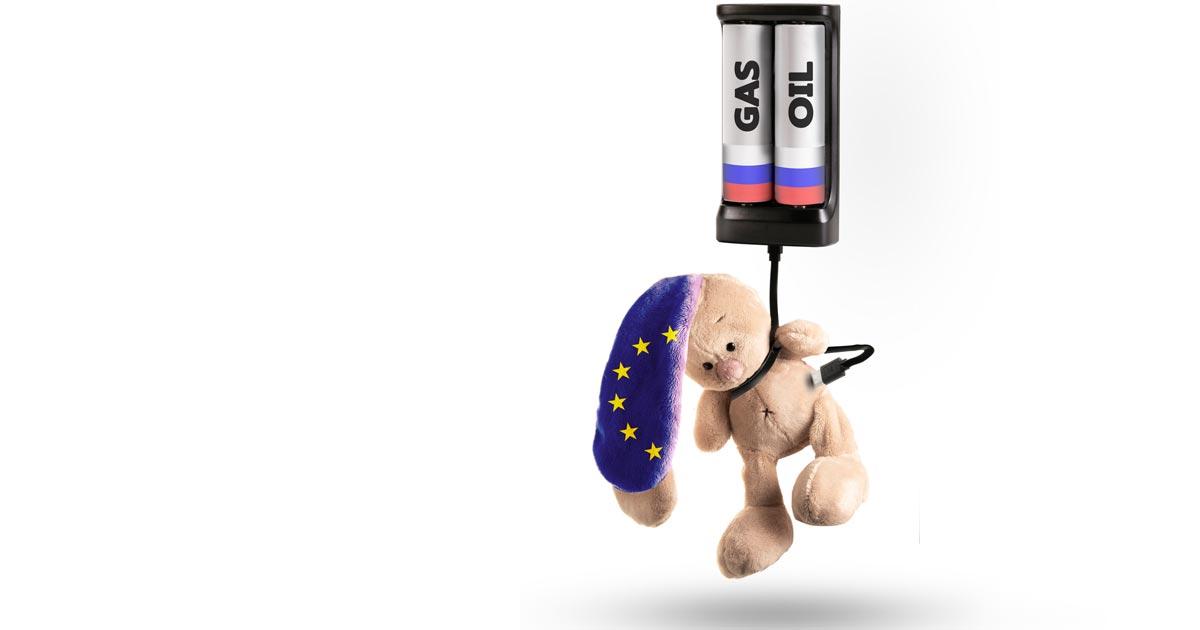
States, regardless of their constitution, are not economic enterprises. In contrast to the latter, states do not finance themselves by selling products and services to customers who voluntarily pay, but by compulsory levies: taxes collected through the threat and use of violence (and through the paper money they literally create out of thin air). Significantly, economists have therefore referred to governments—i.e., the holders of state power—as stationary bandits. Governments and everyone on their payroll live off the loot stolen from other people. They lead a parasitic existence at the expense of a subdued and “host” populace.
A number of further insights emerge from this.
Naturally, stationary bandits prefer larger loot to smaller loot. This means that states will always try to increase their tax revenue and further increase their spending by issuing more paper money. The larger the loot, the more favors they can do for themselves, their employees, and their supporters. But there are natural limits to this activity.
On the one hand, the bandits have to be careful not to burden their “host,” whose work and performance make their parasitic existence possible, so much that the latter stops working. On the other hand, they have to fear that their “hosts”—and especially the most productive among them—will migrate from their dominion (territory) and settle elsewhere.
Against this background, a number of historical tendencies and processes become understandable.
First of all, it becomes understandable why there is a tendency towards territorial expansion and political centralization: with this, states succeed in bringing more and more “hosts” under their control and making it more difficult for them to emigrate to foreign territories. This is expected to result in a larger amount of loot. And it becomes clear why the end point of this process, the establishment of a world state, would by no means be a blessing for all mankind, as is often claimed. Because one cannot emigrate from a world state, and in this respect there is no possibility of escaping state looting by emigration. It is therefore to be expected that with the establishment of a world state, the scope and extent of state exploitation—indicated, among other things, by the level of state income and expenditure, by monetary inflation, the number and volume of so-called public goods and persons employed in the “public service”—will continue to increase beyond any previously known level. And that is certainly not a blessing for the “host population” that has to fund this state superstructure!
Secondly, a central reason for the rise of the “West” to become the world’s leading economic, scientific, and cultural region becomes understandable. In contrast to China in particular, Europe was characterized by a high degree of political decentralization, with hundreds or even thousands of independent dominions from the early Middle Ages up until the recent past. Some historians have described this state of affairs as “orderly political anarchy.” And it is now common among economic historians to see in this quasi-anarchic state a key reason for the so-called European miracle. Because in an environment with a large variety of independent, small-scale territories in the immediate vicinity of each other, it is comparatively easy for the subjects to vote with their feet and escape the robberies of state rulers by emigration. To avert this danger and to keep local producers in line, these rulers are constantly under great pressure to moderate their exploitation. And this moderation, in turn, promotes economic entrepreneurship, scientific curiosity, and cultural creativity.
Finally, in the light of the above considerations, a well-founded historical classification and assessment of the European Union (EU) is possible.
The EU is a prime example of the aforementioned tendency towards territorial expansion and political centralization, with the resulting consequences: an increase in exploitative state measures and a corresponding growth in the parasitic state superstructure (keyword: Brussels).
More concretely: the EU and the European Central Bank (ECB) are the first step towards the establishment of a European superstate, which should eventually merge into a one-world government dominated by the USA and its central bank, the Federal Reserve. Contrary to euphonious political pronouncements, the EU and the ECB have never been about free international trade and competition. You don’t need thousands and thousands of pages of paper for this, full of ordinances and regulations! Rather, it was always and above all a matter of harmonization of the tax, legal, and regulatory provisions of all member states in order to reduce or eliminate all economic location competition in this way. Because if the tax rates and state regulations are the same everywhere or are increasingly being aligned, then there are fewer and fewer economic reasons for productive people to relocate their activities to another location, and the stationary bandits can be all the more undisturbed and therefore continue in their activity of taking and distributing booty.
In addition, the current EU, as a cartel of various governments, only holds together as long as the wealthier bandits, who can draw on a more productive “host population,” above all the German governments, are willing and able to support their needier counterparts in the south and east, with their less productive “hosts,” on a permanent and large scale. And all at the expense of local producers!
In sum, the EU and the ECB are moral and economic monstrosities. You cannot consistently penalize productivity and economic success while rewarding parasitism, waste, and economic failure without causing disaster. The EU will tumble from one economic crisis to the next and eventually disintegrate.
In view of this, it seems urgent to gain a clear idea of possible alternatives to the current course of increasing political centralization. And the memory of the aforementioned “European miracle” should point the way to proceed. Radical decentralization is required for Europe to thrive. Instead of the EU and the ECB, what is needed is a Europe made up of thousands of Liechtensteins and Swiss cantons, linked by free trade and an international gold standard and competing to keep and attract productive people with attractive locational conditions.
However, in order to make this situation not only conceivable, but feasible, it is necessary that states and politicians are no longer regarded as what they claim to be, but as what they actually are: stationary bandits, gangsters and crooks. Until recently, this insight was unthinkable for the overwhelming majority of the population. But the coronavirus regime over the last two years, with its arbitrary and absurd bans on going out, contact, and assembly, and its constantly changing test, certificate, and vaccination regulations, including compulsory vaccinations, has meanwhile caused a great many politicians to be regarded as heavily armed and unscrupulous violent criminals.
PS: Do the current military events in Ukraine require a revision or correction of the above analyses?
On the contrary.
First of all, it is not the Russians, the Ukrainians, the Germans, or the Americans who cause wars, but the bandit gangs that rule Russia, Ukraine, Germany, and America and who can pass on the costs of a war to the civilian population in question.
Then, small states or bandit gangs only wage small wars against small opponents. Large states, on the other hand, which emerged from successful earlier small wars, are generally more warlike and wage not only small but also larger wars against large opponents. And the largest and most powerful of all states, the USA, and its vassal states assembled in NATO (the North Atlantic Treaty Organization), is the most keen on war and expansion. That alone is a reason for small states and decentralization.
Finally, when a smaller state is faced with the expansionist drive and threat of a larger one, it basically has two options: It can submit. Or it can try to maintain its independence. And in order to achieve this goal and avoid war or minimize the risk of war, there is only one promising recipe: neutrality. One does not interfere in the internal affairs of the great power, and one does not threaten or provoke it. Even a great power cannot simply invade another country. For this always requires justification to its own population, which has to bear the burden of a war. And the smaller a state, the more difficult it is to portray its behavior as a threat or a provocation. (Who feels threatened by Liechtenstein?!) And this imperative of neutrality applies all the more when, as in the case of Ukraine, you are faced with two major powers with rival claims at the same time and taking the side of one means an additional threat for the other. The current war is the result of multiple violations of this rule by the government of Ukraine. If the government that came to power in a US-orchestrated coup in 2014 had expressly refrained from joining NATO and the EU, like Switzerland did, and the two then breakaway Russian-speaking provinces in the east of the country would have been let go instead of bullied and terrorized, the potential threat to Russia would have been reduced and the present catastrophe would almost certainly not have occurred. Under sustained US pressure, combined with their own audacity, the Ukrainian ruling clique did nothing of the sort and continued to demand NATO membership. This would have extended the US military presence right up to the borders of greater Russia, which had been declared an enemy state. Therefore, no one could doubt that the behavior of the Ukrainian government would be perceived by the Russian side as a tremendous provocation and a serious threat. The actual result of this provocation, which is now available, was not foreseeable, but it was quite foreseeable that one’s own behavior would also make a Russian reaction like the one that actually took place more likely. In the war in Ukraine, as so often in history, Putin does not have just one father, but several. The completely one-sided anti-Russia hysteria and agitation that is currently widespread in the West is therefore not only factually incorrect, but is primarily intended to distract from the West’s own role in the current drama. And it is meant to make us forget that the United States and its NATO vassals have been responsible for far more war casualties and war damage over the past thirty years than Russia has since the collapse of the Soviet Union and currently in Ukraine.






